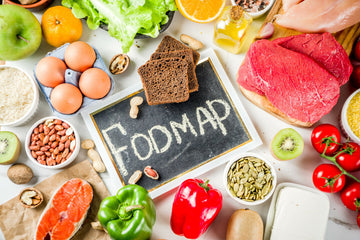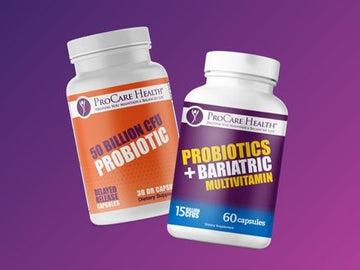by Anthony Benjamin on Oct 12, 2022

Collagen Protein After Weight Loss Surgery
For several years, collagen has been a staple of the beauty industry. However, collagen is
also a vital source of protein, which means it can aid in weight loss after post-bariatric
surgery.
The Importance of Protein After Weight Loss Surgery
Protein is one of the most important nutrients in the post-bariatric diet. It is also a part of every cell, organ, and tissue in your body. The body is unable to store protein for later use, which means you should always eat high-quality protein, especially if you recently underwent weight loss surgery.
If you do not consume high-quality protein, your body will likely suffer. When protein intake is inadequate, the body will break down lean body mass to compensate for poor nutritional intake.
While the loss of lean body mass is inevitable for weight loss patients, it is possible to minimize the risk of weight gain if you consume high-quality protein every day. The consumption of high-quality protein can lead to numerous benefits for your body, including:
- The healing of wounds after bariatric surgery – As with any medical procedure, weight loss surgery results in scars, stitches, and incisions that take time to heal. Protein helps build and repair tissue, including skin, muscles, and major organs.
- The burning of body fat instead of muscle – After bariatric surgery, your calorie intake is restricted. The body tends to preserve fat and use muscle mass as energy, instead of the other way around. When you consume healthy protein every day, you can preserve muscle tissue, which forces your metabolism to use fat for energy.
- Faster weight loss – The more muscle you have and the higher your metabolism, the more fat calories your body will burn. Protein supports your metabolism so you can lose weight faster.
What is Collagen Protein?
If you need to incorporate protein into your post-bariatric diet, you may want to consider collagen.
As a major insoluble fibrous protein, collagen is the main building block for your tendons, ligaments, bones, skin, muscles, and other connective tissues. It is made up of three chains of more than 1,000 amino acids, including glycine, proline, hydroxyproline, and arginine.
Collagen accounts for 25 to 30 percent of the total protein found in your body. There are also at least 16 different types of collagen in your body.
As one of the most common types of protein, collagen is strong enough to form the foundational and protective structures of your body. Collagen is the most abundant protein in our bodies, which means it is essential to healthy skin, improved skin texture, moisture, elasticity, and gut health.
Although collagen is one of the most common types of protein, you can only find it in animals, not plants. Collagen is a protein that your body produces and needs for optimal performance, especially after weight loss surgery – although it should not be your only source of protein.
What are Collagen Protein Peptides?
Collagen peptides, or hydrolyzed collagen, are smaller, amino-rich pieces of the larger collagen protein structure. Collagen is a massive protein molecule, which means it can be difficult for the body to digest.
However, when the full-length collagen molecule is broken into smaller pieces, the digestive tract absorbs it quickly and efficiently, so it can move throughout the body. Once absorbed, the digestive tract also rebuilds collagen peptides into full-strength collagen fibers throughout your body.
The Pros and Cons of Collagen as a Protein Source
Now that you understand what collagen is, and how it is used in your body, it is important to understand the advantages and disadvantages of collagen as a protein source after bariatric surgery.
The Pros of Collagen
SUPPORTS HEALTHY AND STRONG SKIN
Apart from weight loss, bariatric surgery can also result in loose skin. When someone loses a lot of weight, excess skin hangs from the body. Typically, the greater the weight loss, the more loose skin you will have.
Collagen can also increase skin elasticity, hydration, and dermal collagen density. It can also provide your body with firmness and strength, and aid in the growth of hair, skin, and nails.
REDUCES OVERALL CALORIE INTAKE
If you want to lose weight after bariatric surgery, collagen is the perfect choice of protein. Collagen promotes fullness and keeps your body feeling satisfied after you eat. If you feel full after eating, you are less likely to overeat during your next meal.
Collagen can also help you fight cravings such as salty or sugary foods. By incorporating collagen into your diet, you can reduce feelings of hunger and eat more intentionally.
INCREASES JOINT HEALTH AND MUSCLE STRENGTH
After weight loss surgery, it is important to participate in physical activity. Whether you choose to exercise at a gym or walk a mile every day, the key to weight loss is health and longevity.
To move efficiently, you need to be strong. Collagen is a strong, structural protein, so they play a vital role in strengthening your muscles, improving joint pain, and decreasing the risk of injury.
The Cons of Collagen
NOT A COMPLETE SOURCE OF PROTEIN
Unfortunately, collagen is not considered a high-quality protein because it is not a complete
protein. A complete protein, or an animal-based protein such as beef or poultry, is composed
of nine essential amino acids:
- Histidine
- Isoleucine
- Lysine
- Methionine
- Phenylalanine
- Threonine
- Tryptophan
- Valine
Collagen is low in methionine, leucine, isoleucine, and valine, which means it is a poor choice for muscle integrity and building muscle. It is also entirely devoid of tryptophan. Although collagen is a good source of protein, it should not displace complete proteins in your diet, or be your primary source of protein.
LOW PDCAA SCORE
The protein digestibility corrected amino acid score (PDCAA) system is the most common way to measure protein quality. The score examines all of the essential acids in the protein to calculate a score. High-scoring proteins are classified as “good”, while low-scoring proteins are “bad.”
Due to the lack of tryptophan, collagen has a score of 0. However, some experts believe the score does not accurately depict the usefulness of collagen or its benefits as a protein source.
The Alternative to Collagen as a Protein Source
If you are interested in collagen but worry about the missing amino acids, you may want to consider another option: LiquaCel Liquid Protein.
LiquaCel has the amino acids that collagen does not have, which means it is a complete protein. It is a hydrolyzed collagen liquid protein that contains 16 grams of protein and 2.5 grams of arginine per serving (1 oz).
It is available in 32 oz bottles and convenient to-go packets. You can also choose from five different flavors, including watermelon, grape, peach mango, lemon, and orange.
Currently, LiquaCel is being used at every dialysis center in the country, as well as several wound care centers and bariatric facilities, who have seen an increase in albumin levels with patients. LiquaCel has a PDCAA score of 43, which is significantly higher than collagen itself.
ProCare Health Supports You On Your Journey
At ProCare Health, we are focused on providing you with the essential bariatric multivitamins, calcium supplements, proteins, and vitamins and minerals to support you during your weight loss journey and beyond.
Not sure what product would work best for you? Contact us. Based on your surgery type, preferences, and health needs, we will guide you to the products that will provide the best results.

How the Low FODMAP Diet Is Good for Gut Health

What Is Food Noise?


